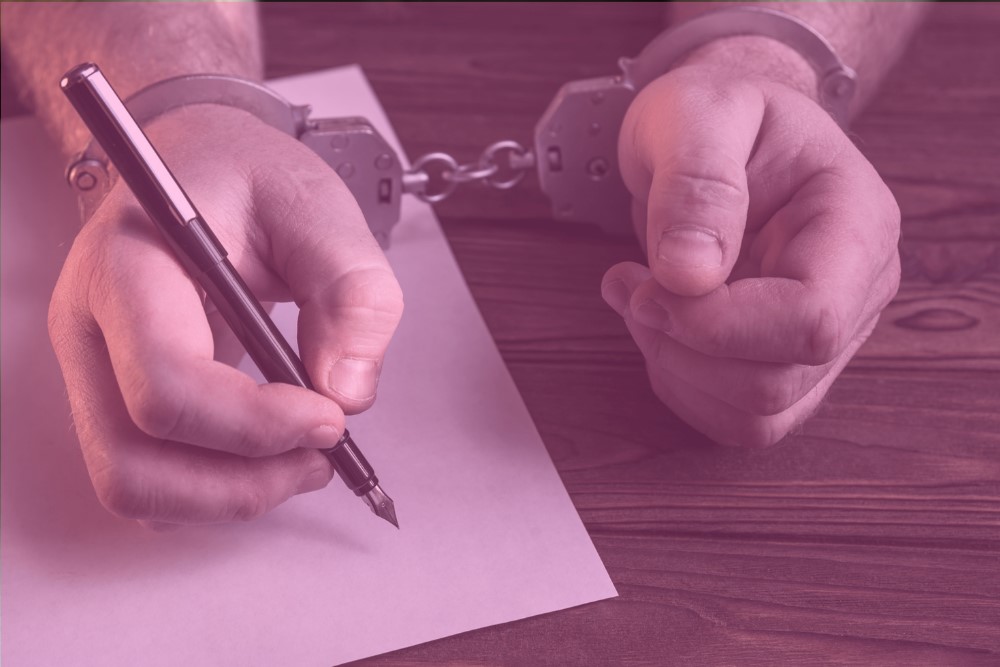In many cases, when a person is charged with a criminal offence, they may want to finalise the matter quickly by pleading guilty. This is especially likely to be the case if the offence is minor and the situation is relatively uncomplicated. However, before pleading guilty, there are several issues that should always be considered. This page deals with pleading guilty to criminal offences in Australia.
Are you actually guilty?
Although this question may seem straightforward, there may be more to it than you realise. It is important to consider all of the below and if possible, obtain legal advice prior to entering a plea.
Are all the elements of the offence made out?
Many criminal offences involve both a physical act, known as the actus reus, and a mental element, known as the mens rea. A person should not plead guilty to an offence unless they are satisfied that both the physical and the mental elements of the offence are fulfilled.
Is the summary of facts accurate?
When a person is charged with an offence, they will receive a charge sheet accompanied by a summary of the alleged facts.
You should always check the summary of facts carefully to make sure that it accurately reflects what happened. If there are statements that you disagree with, but you want to plead guilty to the offence, you or your lawyer should speak to the prosecution and see if they will agree to amend the facts. Once the facts have been altered and you are satisfied that they are accurate, you can proceed to plead guilty.
Is there duplication between charges?
If you have been charged with more than one offence, there may be duplication between the charges. The police will often lay two alternate charges arising from the same facts.
Where an accused person is willing to plead guilty to one of the offences, the prosecution may agree to withdraw the other charge. Some common examples of this include where charges of assault police and resist police have been laid in relation to a single incident or where a person is charged with both possessing cannabis and supplying cannabis.
While the police are not always willing to withdraw a charge in this situation, it is always worth talking to them about whether such a deal is possible.
Can the prosecution prove it?
If you did commit the acts alleged, ask yourself whether the prosecution can prove this beyond a reasonable doubt. In some cases, this may mean adjourning the matter and obtaining the brief of evidence from the prosecution. The brief of evidence is a copy of all the evidence that the prosecution intends to use against you. It may contain witness statements, CCTV footage, photographs and forensic evidence.
If the brief of evidence shows a weak prosecution case, it may be advisable not to plead guilty. Alternately, you may be able to use the weakness of the case against you to negotiate for the withdrawal of some, or even all, of the charges.
Is there a defence available?
Even if you did the physical act involved in the offence you have been charged with, you may have a legal defence available. For example, the offence may have been an accident, or you may have been acting in self-defence or under duress. It is always a good idea to seek legal advice to ensure that there is no defence available to you before pleading guilty.
Mitigating factors
If you decide to plead guilty, you or your lawyer will have to present a plea in mitigation to the court. This is where you tell the court about your circumstances and the circumstances of the offence. This is your opportunity to present your case in a sympathetic light.
You may want to tell the court about your employment history or academic record, provide character references from people who know you, and talk about your prior good record (if it was your first offence) as well as any particularly difficult circumstances that contributed to the offending.
If the offence was connected to a specific problem, evidence that you have taken steps to address the problem, such as by taking part in a drug and alcohol rehabilitation program, will be relevant to the court when it sentences you. If you have apologised to the victim or taken steps to make amends for the offence – such as by paying for damage caused – this is also a relevant mitigating factor.
If you are experiencing financial hardship, make sure the court knows this in case it is considering imposing a fine.
Court etiquette
When you attend court, make sure you are dressed neatly and conservatively dressed and that you arrive on time. Dealing with a matter in court often takes longer than you expect, so be sure to have the whole day free. If you are facing a licence suspension, do not drive to court.
If you require legal advice or representation in any legal matter, please contact Taylor Rose.




